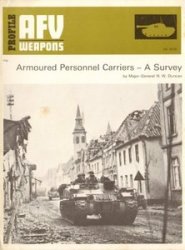The fate of the Stukas the day before suggests what might have happened to the relays of Stukas that were, more than any other factor, the key to Guderian’s crossing of the Meuse on that Monday afternoon.
Granted the infinite wisdom that only hindsight provides, it is easy now to see that the Allied air forces threw away their chance of hitting the Schwerpunkt at the moment when it was most vulnerable. Certainly military experts then had some reason to believe that Guderian would wait three or four days for his heavy artillery and take this chance to rearrange his units for the assault. Allied bombing units had taken a terrible beating, and their commanders believed that they would need every available aircraft when that river crossing took place in a few days’ time. From London the Chief of Air Staff displayed the Air Ministry’s usual perspicacity by signaling, “If we expend all our efforts in the early stages of the battle we shall not be able to operate effectively when the really critical phase comes.”
The confusing French air force command system, which put the planes under the orders of both the Air Cooperation Forces and of the group commander, was also clogging the communications. Local
Army units as well got through directly to the squadrons, pleading for immediate aid. The same air force that had not appreciated how much damage light flak could inflict, nor the necessity of close fighter escort for its bombers, now failed to understand the importance of concentration.
A typical day’s demands upon the French First Army’s air force units went: 5 per cent to the Seventh Army, 5 per cent to the Ninth Army, 60 per cent to General Touchon’s detachment, and 50 per cent to the Second Army. The absurdity of ordering up air efforts like linoleum for an unmeasured room was compounded by the way in which this particular command was followed by another from the Air Cooperation Commander, who wanted 50 per cent for Mezieres, 30 per cent for Sedan, and 20 per cent for Dinant. In addition, there were the usual constant calls from army units that were under attack.
After this sort of muddle had been sorted out and French air formations finally reached the battle area, as often as not they found themselves engulfed in skies filled with German aircraft, while elsewhere French fighters were returning home without finding a target. Worse than the duplication of command was the absence of any at all. Guderian’s river crossing on 13 May took place with little or no interference from Allied air forces. By the following morning German flak was already in position on the south side of the river and while the French Second Army was being attacked by the Luftwaffe, its fighter group waited on the ground without receiving any orders at all.
As a measure of the concern felt about the speed of the German advance, two squadrons of RAF Armstrong-Whitworth Whitley bombers were dispatched to France by Bomber Command. Briefed by an officer of the air component of the British Expeditionary Force, these heavy bombers were sent to destroy the Meuse bridges. They too failed.45




 World History
World History









